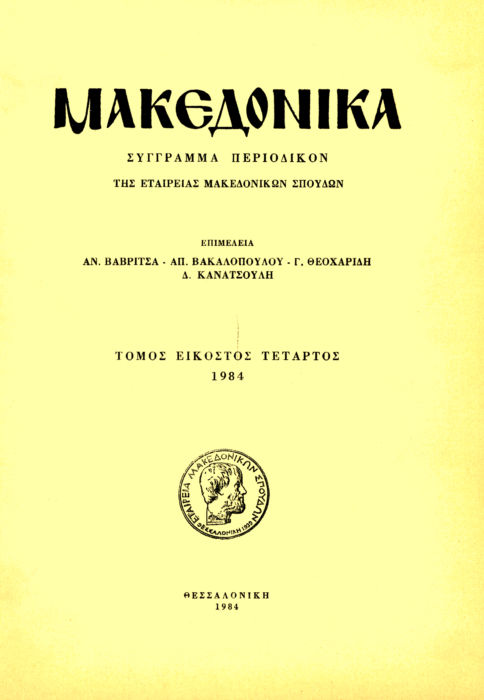Quartiers chrétiens, corps de métiers et professions de Salonique au milieu du XIXe siècle
Abstract
Un ami de Salonique qui préfère rester anonyme m’a rendu un très interessant manuscrit inédit écrit en 1865 et portant des informations précieuses sur les divers quartiers chrétiens, corps de métiers et professions de Salonique au milieu du XIXe siècle. Il s’agit alors d’un catalogue de tous les habitants de la ville étant en état de porter les armes et qui participaient proportionnellementà l’impôt personnel nommé en turc «bedel». Le manuscrit est divisé en deux parties. Ainsi dans la première sont marqués les noms de tous les imposables de douze quartiers de Salonique et dans la deuxième les imposables de divers corps de métiers en 1856. Le contenu du matériel inédit nous montre la particularité des corps de métiers grecs pendant cette époque en conservant leurs dénominations et en fournissant des informations remarquables sur l’histoire économique et sociale des Grecs de Salonique.
Article Details
- How to Cite
-
Βακαλόπουλος Κ. Α. (1978). Quartiers chrétiens, corps de métiers et professions de Salonique au milieu du XIXe siècle. Makedonika, 18(1), 103–142. https://doi.org/10.12681/makedonika.491
- Issue
- Vol. 18
- Section
- Articles

This work is licensed under a Creative Commons Attribution-NonCommercial-ShareAlike 4.0 International License.
Authors who publish with this journal agree to the following terms:
- Authors retain copyright and grant the journal right of first publication with the work simultaneously licensed under a Creative Commons Attribution Non-Commercial License that allows others to share the work with an acknowledgement of the work's authorship and initial publication in this journal.
- Authors are able to enter into separate, additional contractual arrangements for the non-exclusive distribution of the journal's published version of the work (e.g. post it to an institutional repository or publish it in a book), with an acknowledgement of its initial publication in this journal.
- Authors are permitted and encouraged to post their work online (preferably in institutional repositories or on their website) prior to and during the submission process, as it can lead to productive exchanges, as well as earlier and greater citation of published work (See The Effect of Open Access).





